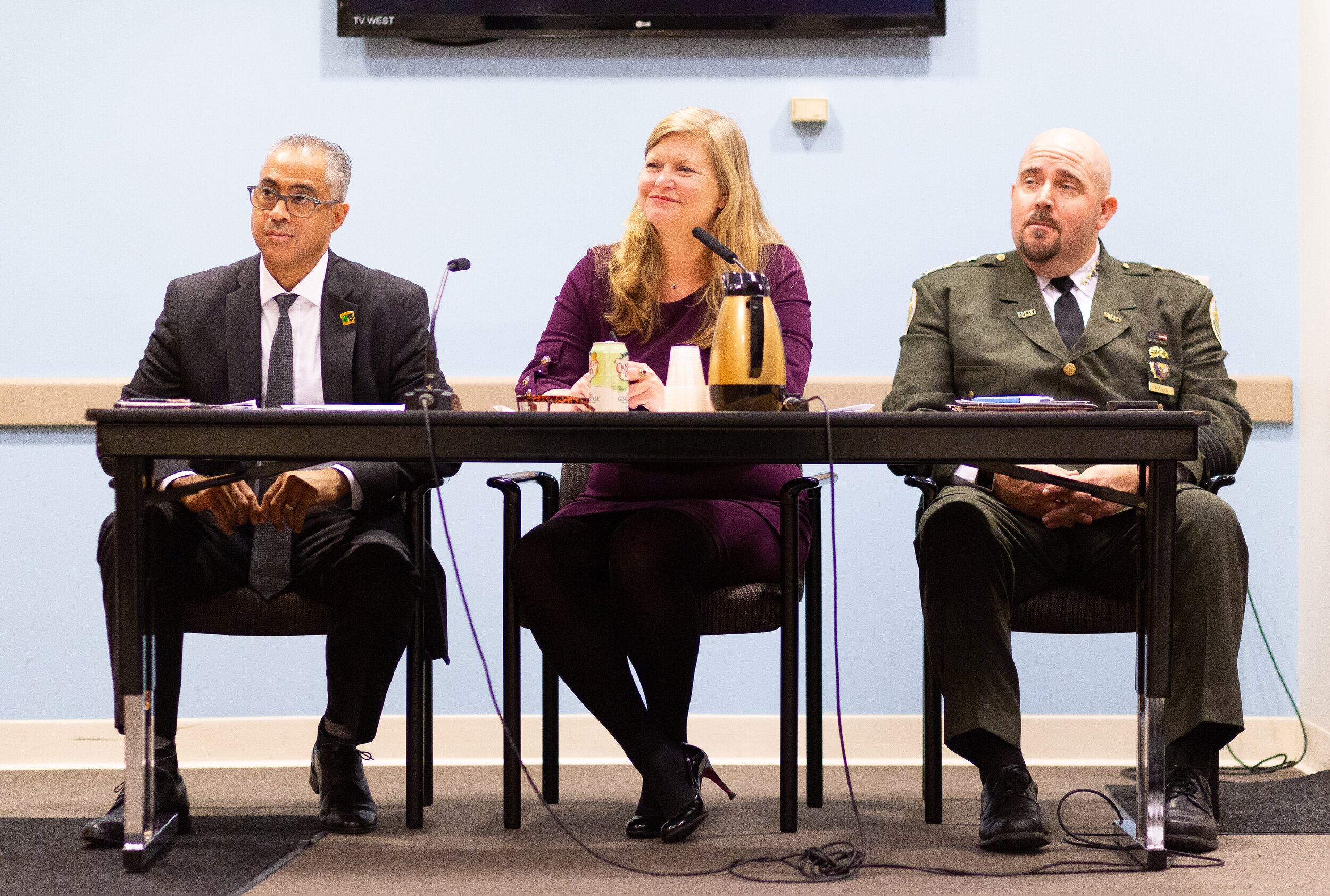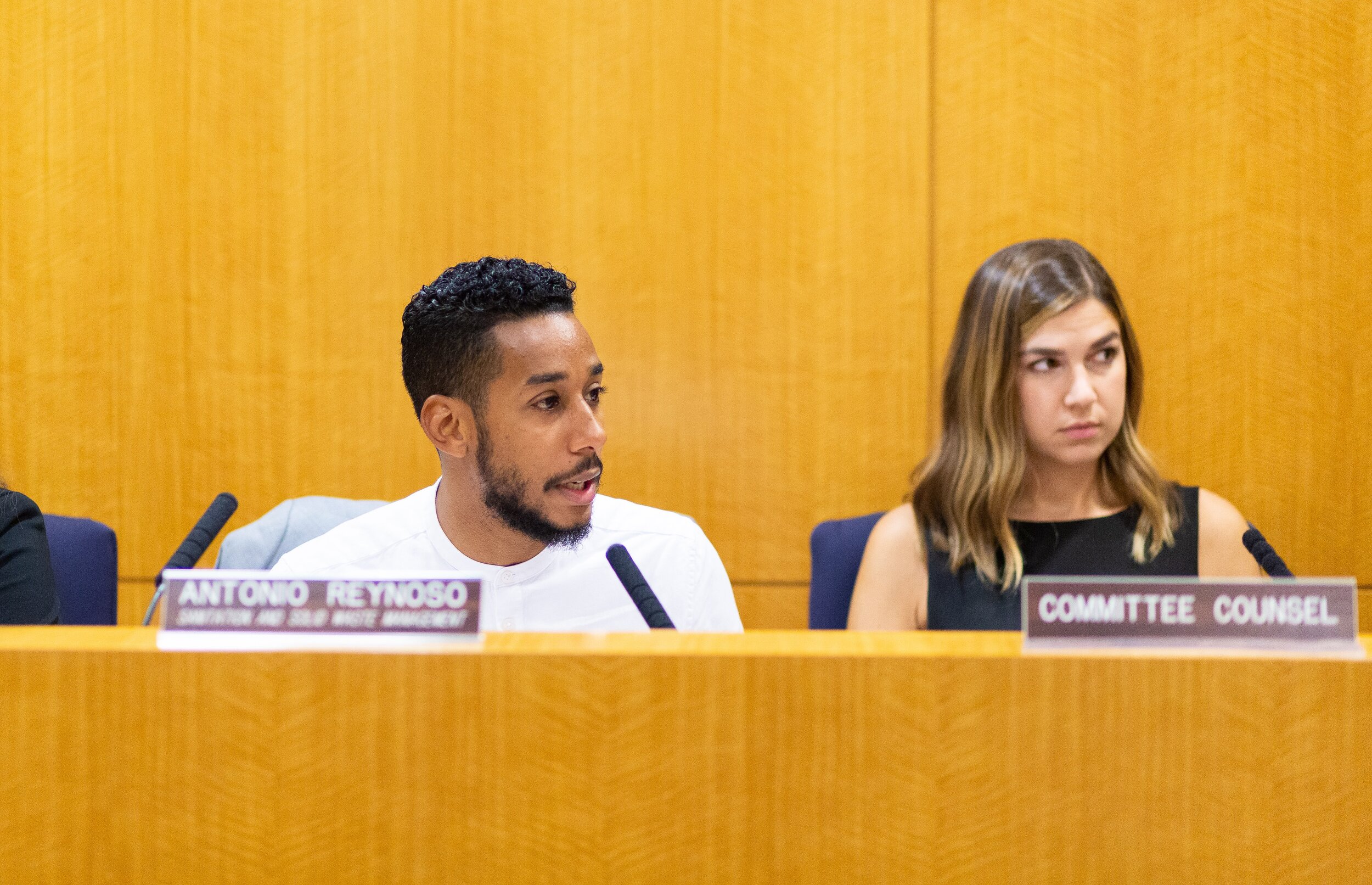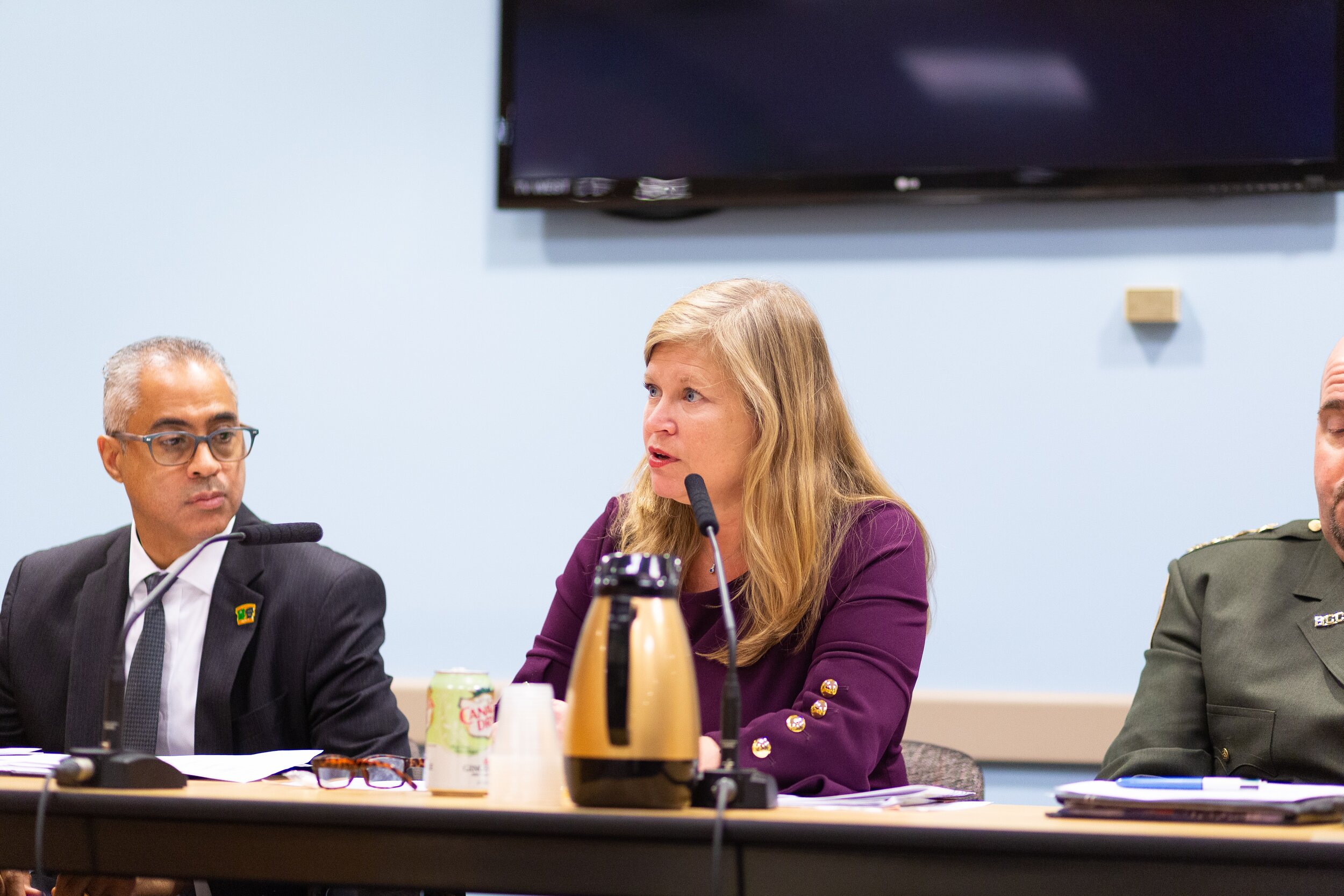City Council and Dept. of Sanitation at Odds Over Snow Violations
October 23, 2019 | By Diane Bezucha
NYC Council Member and Committee Chair Antonio Reynoso at Wednesday's Committee on Sanitation and Solid Waste Hearing. Photo by Diane Bezucha.
If you have encountered snowplows on the streets lately, you are not seeing things.
While most New Yorkers are still sipping pumpkin lattes and enjoying the fall colors, snowplow season officially opens on Monday, and the Department of Sanitation is training staff for winter snow removal.
In preparation for the winter, Department of Sanitation Commissioner Kathryn Garcia presented the agency’s $111 million fiscal year 2020 snow removal plan at a hearing Wednesday with the City Council’s Committee on Sanitation and Solid Waste Management.
Council Member Daniel Dromm, District 25, pressed the agency on its lack of support for his proposed Intro 1228, a local law that would protect residents from certain sanitation violations during weather-related emergencies.
“No one should be penalized by the city for following the city’s own instructions. Yet that is exactly what is happening when the Department of Sanitation issues violations during declared emergencies, ” said Dromm.
In New York City, homeowners of one-, two- and three-family homes are required to clean the sidewalk in front of their building and 18 inches into the street. Failure to do so can result in a citation.
In the wake of Hurricane Sandy, the city amended its administrative code so that New Yorkers were not slapped with sanitation violations while recovering from a natural disaster. Dromm argues this protection should not be limited to Sandy. His proposed law adds four clauses to the code that provide a defense against violations when the mayor has declared a state of emergency or urged people to stay indoors because of extreme heat or cold. The amendment also provides special protections for individuals with disabilities and those 65 years or older.
“New York City should not be putting an undue burden on its residents, especially the most vulnerable members of our communities,” Dromm said. “Doing so does nothing to advance the goal of encouraging compliance. It only makes our city agencies look like fine collecting machines.”
Dromm told the story of an 86-year-old woman who lives alone in his district and received two citations last year for not clearing the garbage from her sidewalk while the mayor had issued weather-related warnings to stay indoors.
“Why you are contradicting the mayor and telling people to go out when the mayor has told people to stay in?” he asked Garcia.
But the Department of Sanitation is not in favor of the proposal.
“While the department understands the intent behind this legislation, the department cannot support any legislation that impacts the cleanliness of our sidewalks and street. We rely on people to keep the city clean,” said Garcia.
When Dromm accused the agency of prioritizing “cleanliness over safety,” Garcia held firm, insisting that property owners are required to take care of their property and that she would tell her own elderly mother to hire someone or ask for help to ensure her sidewalk was clean, even in inclement weather.
“The people who struggle the most when people don’t clear their sidewalk are the elderly and disabled, ” said Garcia.
“I think we can do both,” said Committee Chair Antonio Reynoso, suggesting further conversation about the proposal. “I think we can figure out a way where the sidewalks get cleaned and we are not being punitive to the elderly folks.”



